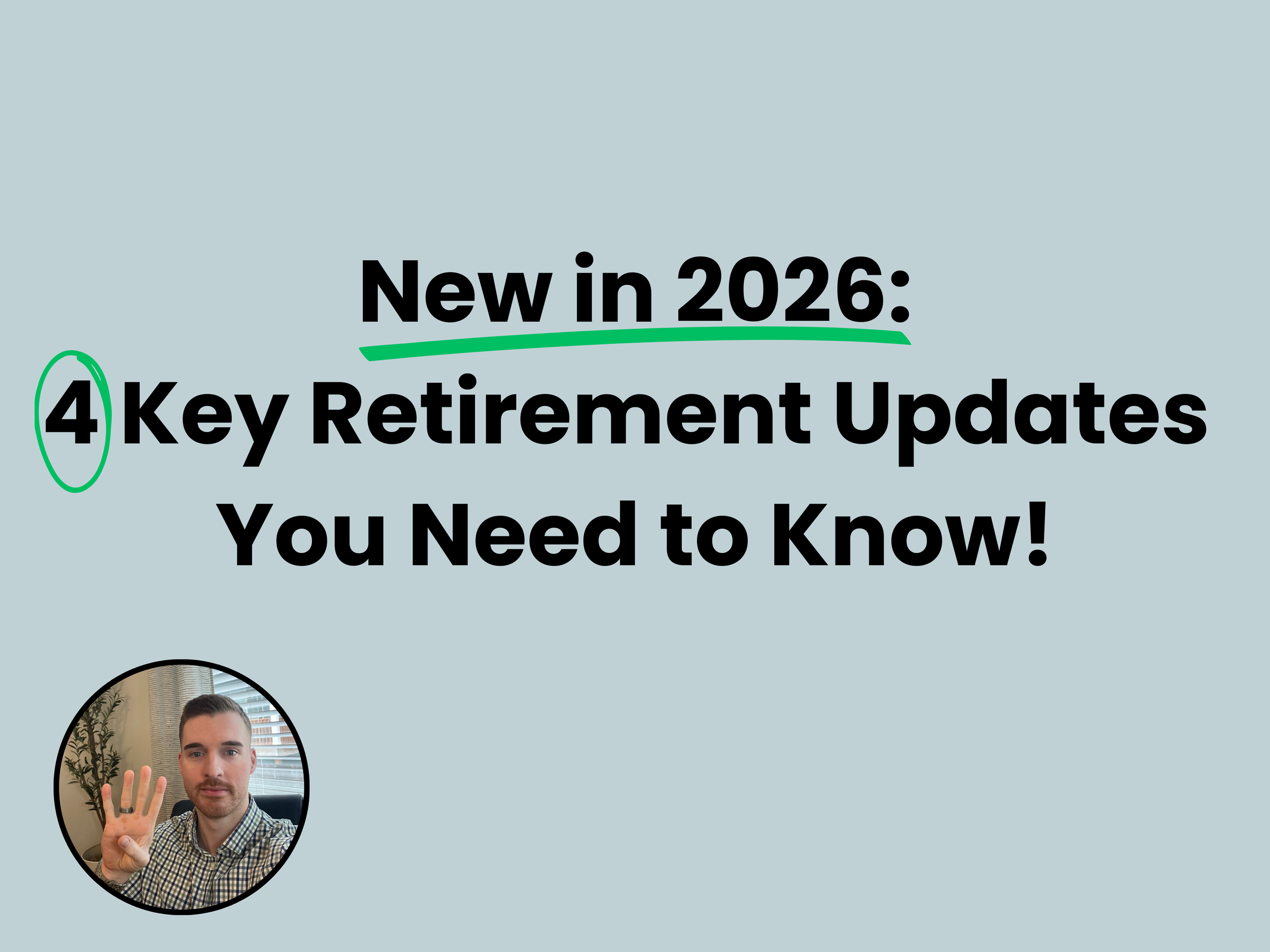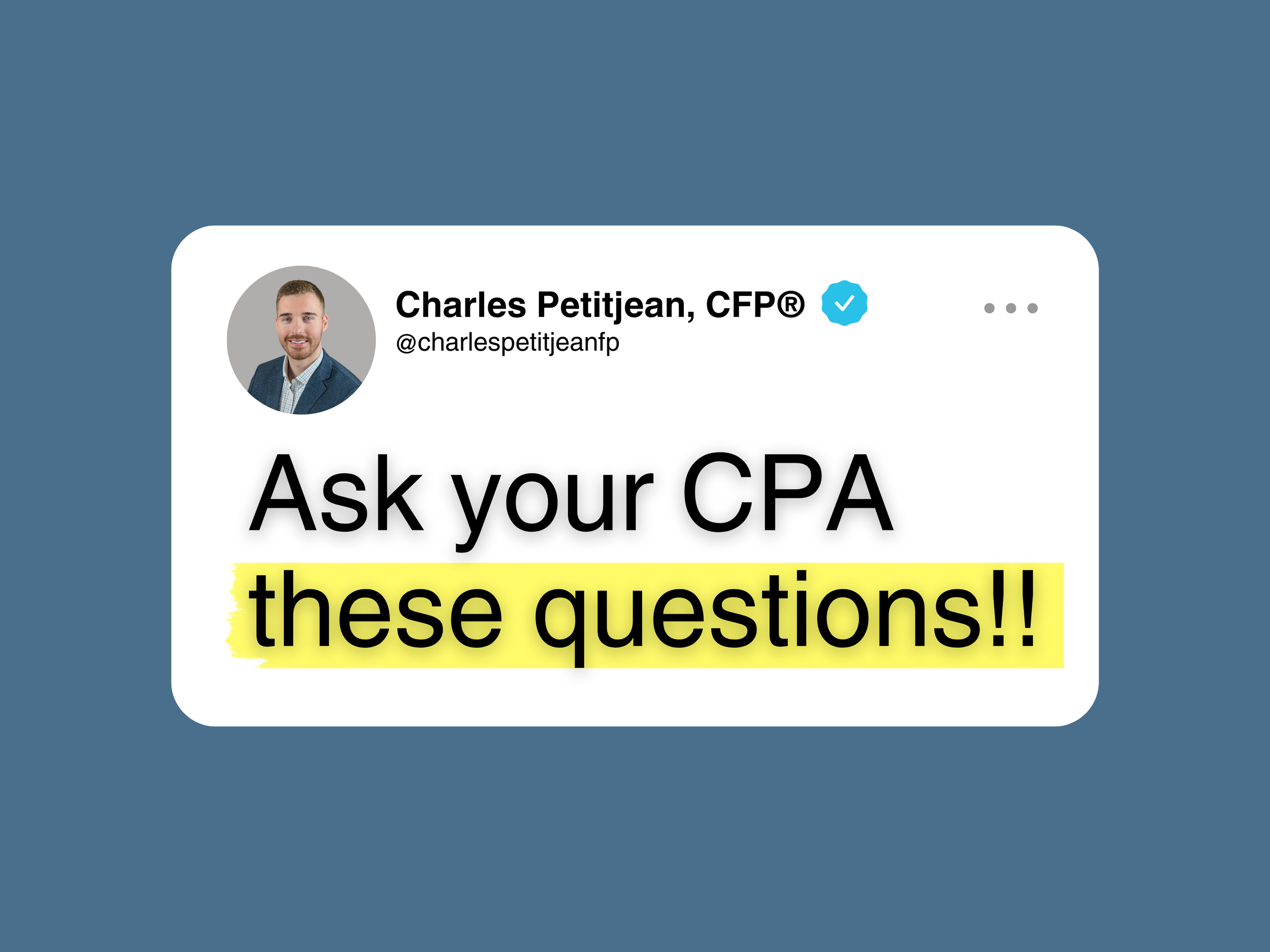The Best Accounts to Fund if You Want to Retire Before 60
If early retirement is a goal of yours, whether that’s in your 50s or even sooner, traditional retirement accounts like 401(k)s and IRAs likely won’t be enough.
While they’re powerful for long-term, tax-deferred growth, they also come with strings attached, most notably, penalties for accessing your money before age 59½.
Now, they are some exceptions to this like SEPP and Rule of 55, which can provide some people with penalty- free access to retirement funds in their 50s, but they do not apply to everyone.
So what’s the solution to this dilemma?
To bridge the gap between your early retirement and when you can tap traditional accounts without penalties, two lesser-talked-about accounts become essential: a taxable brokerage account and a health savings account (HSA).
Let’s break down how these two account types can give you the flexibility and tax efficiency needed to retire early.
Why Pre-Tax Accounts Can Fall Short for Early Retirees
Tax-deferred retirement plans are still a core piece of the puzzle, but they weren’t designed with early retirement in mind. While they offer:
Tax-deferred growth, so your investments compound more efficiently
Potential tax deductions, helping reduce taxable income while you're working
…they also impose a 10% early withdrawal penalty if you tap into them before age 59½ (with limited exceptions). That’s a problem if you want to stop working earlier.
That’s where these two other account types come in.
1. Taxable Brokerage Accounts: Flexible and Accessible
A taxable brokerage account may not get the same spotlight as your 401(k), but it’s one of the most useful tools in the early retiree’s toolbox.
Why It’s So Valuable:
No early withdrawal penalties – Funds are available anytime, for any reason.
No contribution or income limits – High earners can save as much as they want.
Favorable tax treatment – In this account, the investment gains realized upon sale are subject to capital gains rates. For investments held less than one year, the rates mirror ordinary income tax rates. Notably, for investments held longer than one year, the preferred and lower long-term capital gains rates are assessed.
Tax-loss and tax-gain harvesting opportunities – With the right strategy, you can manage your tax liability efficiently year to year.
Bonus Uses for Early Retirement:
Use this account to pay taxes on Roth conversions, preserving more of your tax-deferred assets.
Strategically manage withdrawals to stay within ACA income thresholds and qualify for health insurance subsidies.
It’s a great source of income before RMDs and Social Security begin, giving you more control over your tax picture.
A Few Considerations:
Investment income is taxable annually (dividends, realized gains), which adds a layer of complexity.
Contributions aren’t tax-deductible, unlike IRAs or 401(k)s.
Still, the control and liquidity you gain make this account a key part of an early retirement plan.
2. Health Savings Accounts (HSAs): Triple Tax Benefits with Long-Term Impact
If you participate in a high-deductible health plan (HDHP), you have access to the powerful and almighty, HSA. In my opinion, this account is incredibly undervalued, not just for covering healthcare costs, but for building long-term, tax-advantaged savings.
Why HSAs Are Unique:
Triple tax benefit:
Contributions are tax-deductible.
Growth is tax-free.
Withdrawals for qualified medical expenses are tax-free.
Use for any medical expenses at any age
After age 65, funds can be used for non-medical expenses without penalty (just like a traditional IRA).
How HSAs Help Early Retirees:
Cover out-of-pocket healthcare costs without tapping other retirement accounts
Withdrawals for medical expenses don’t count as taxable income, which is helpful when managing AGI for things like ACA credits or Roth strategies
HSAs can even be used for health insurance premiums (in specific early retirement situations)
A Few Trade-Offs:
You must be enrolled in a qualifying HDHP to contribute
Annual contributions are capped ($4,150 for individuals and $8,300 for families in 2024, plus $1,000 catch-up if 55+).
HDHPs are not best suited for everyone. Depending on your health and ongoing medical needs, you may benefit from having a traditional PPO or HMO plan. If you are a frequent utilizer of medical care, then you may struggle with the high out-of-pocket deductible that must be met prior to coinsurance kicking in.
That said, for those who are eligible and find a high-deductible health plan to be a good fit, few accounts offer the same long-term benefits as an HSA.
Powerful for Your Early Retirement!
If you want the freedom to retire before 60, you need to rely on more than just IRAs and 401(k)s. Building up a well-funded taxable account and an HSA can help you bridge the early retirement gap, manage taxes more effectively, and keep your plan flexible.
The earlier you start contributing to these accounts, the more they can work for you later, whether you leave work at 55, 60, or beyond.





